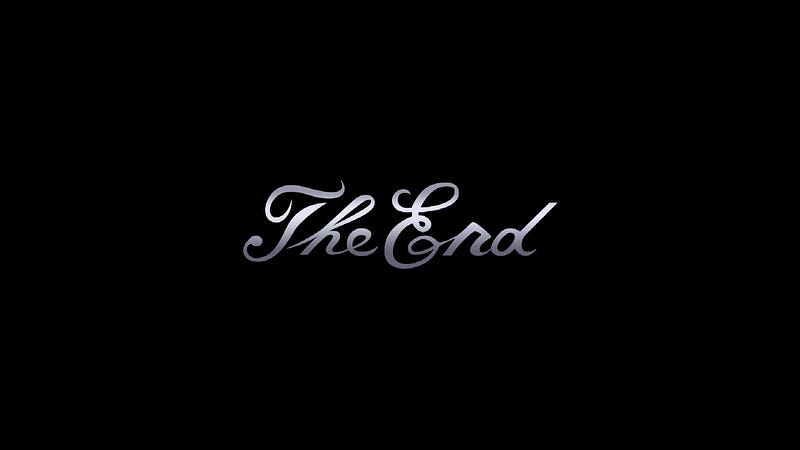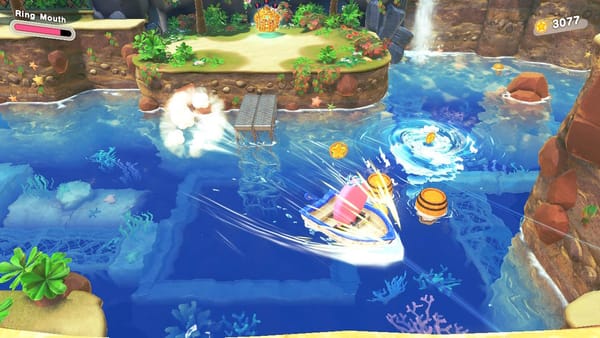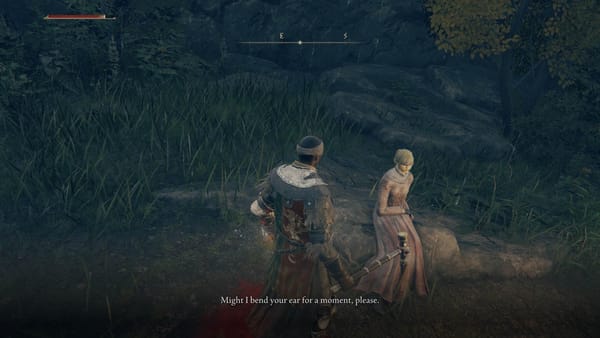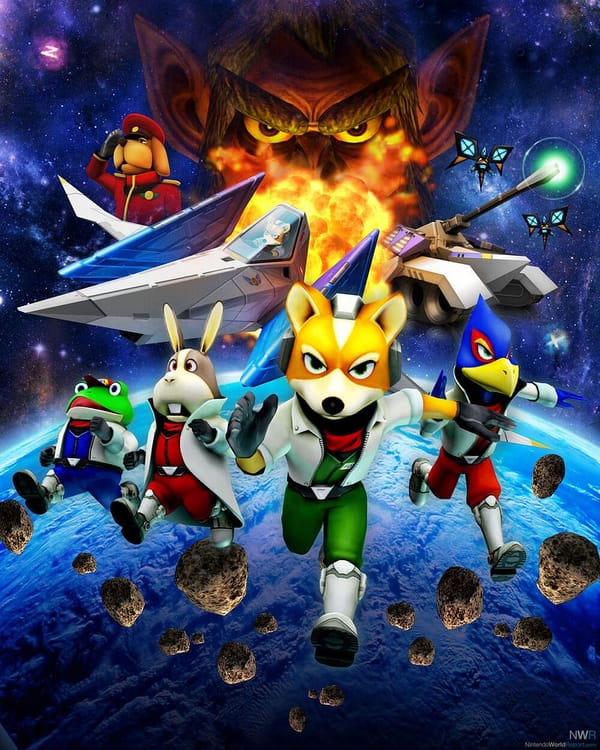On Dragon Quest: My Experience in Alefgard
Before COVID took it upon itself to suspend the World and put everything on hold, I decided that 2020 would be the year I finally sat down…
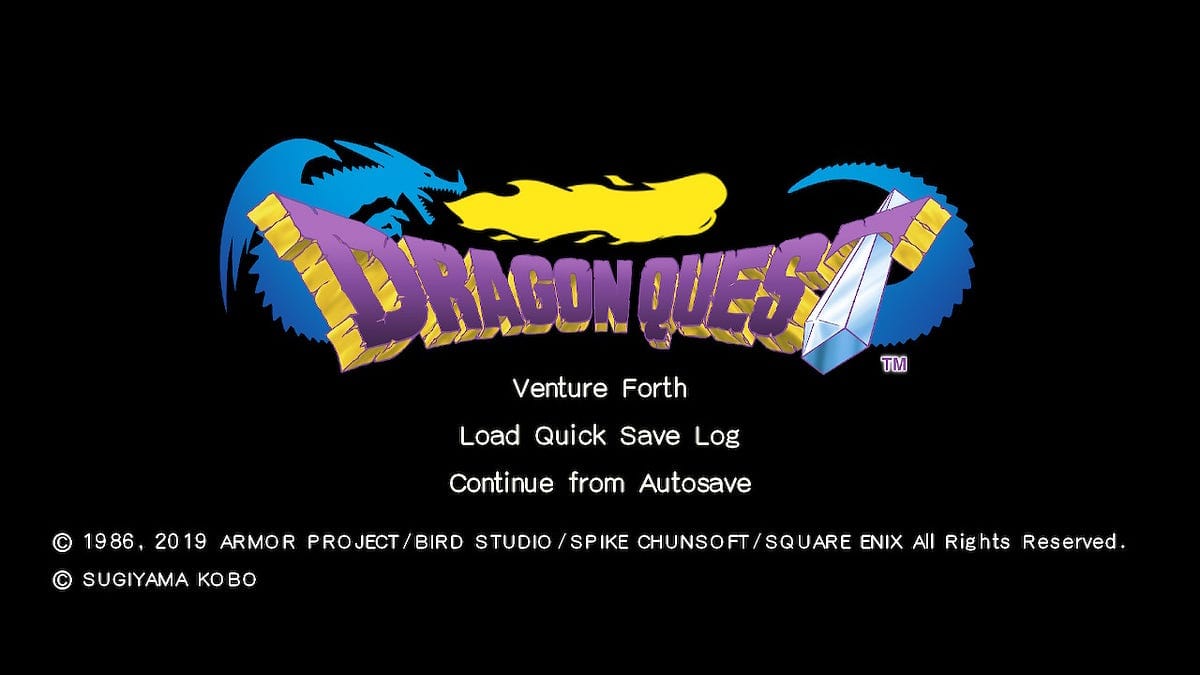
Before COVID took it upon itself to suspend the World and put everything on hold, I decided that 2020 would be the year I finally sat down and went through my backlog of games. The list is huge, with the main idea being completing a game’s main story, plus any additional content that I deem crucial for the full experience. At the base of the mountain was the original Dragon Quest, a Japanese Role-Playing game from 1986, and the first of its kind.
When I took the initiative to get through this backlog, I also made it a point to go into every game as blind as possible. I knew nothing about Dragon Quest aside from that the combat was turn based and that the game was old. Upon opening the game I was greeted with a simple intro screen. Crediting Square Enix and Yuji Horii into a black background and the Dragon Quest logo, giving me the option to ‘Venture Forth’ backed by a heroic melody. Honestly, the feeling I got from this screen was pretty in tune with what the game was going for. I felt like I was about to embark on this big, sacred quest to fight monsters and be a hero. However, there was one key feature to games like this one that I failed to consider as I thrust myself into the kingdom of Alefgard.
See, the thing about old JPRG’s is that they lack direction at the start. The game will place you down seemingly with a place in mind but doesn’t directly send you that way. Every move that the player makes is from raw instinct and exploring the world around them, leaving much to the imagination and working off how the player sees the game’s world. While this typically isn’t a problem for video games, Dragon Quest does it in a way that doesn’t age well. When I started my quest, I was meeting with the king and being told about how I needed to go find the princess who had been captured by a dragon and being held in a cave. It was right after this happened that I got tossed into a world that I had no familiarity with at all. The dragon’s cave was somewhere, I just didn’t know where that somewhere was. Eventually I just started wandering and fighting Slimes trying to find the next town and see where that would take me. After arriving in the next town, I realized I still had no idea where to go. The nondescript map didn’t help much either and eventually I caved and pulled up a walk-through of the game (this would be the last time I did this for any game).
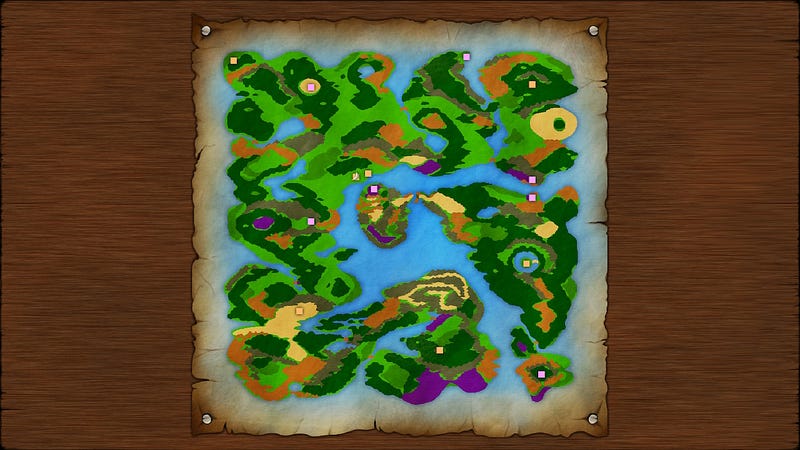
Once I had an idea of where to go, I got the gist that my navigation through the game would have relied on pure exploration and interacting with the game’s NPCs to gather information. Upon further consideration I realized how normal this is now but fell short in this game. The map being a pain to read made navigation harder with landmarks being pink and orange squares and a feather symbolizing your spot on the map. The walk-through streamlined this process but undoubtedly broke the initial immersion to a degree, and I regret it. However, in aspects of both game-play and story, this is the most linear you can get with a JRPG.
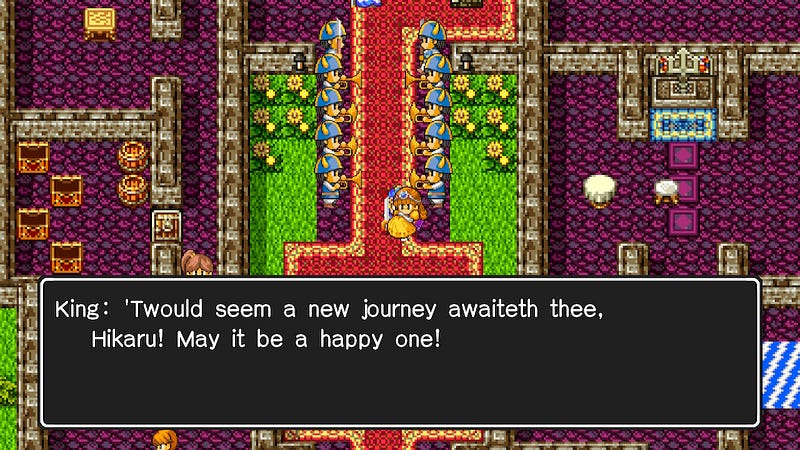
On the game’s actual story, there isn’t much to write about. I’m a descendant of the hero of legend and I need to go save the princess from the monster and then the game opens up after we fix a bridge (does anyone else find it odd that bridge building is such a common trope?). Since I saved the princess she gives me her special item that lets me ask her for help at any point in my quest if I need it, or I just miss her. I then traveled around from town to town, looking for sacred objects, fighting enemies to get stronger and get more money, and eventually found the Dragonlord’s castle. But we’ll get to what happens with that later.
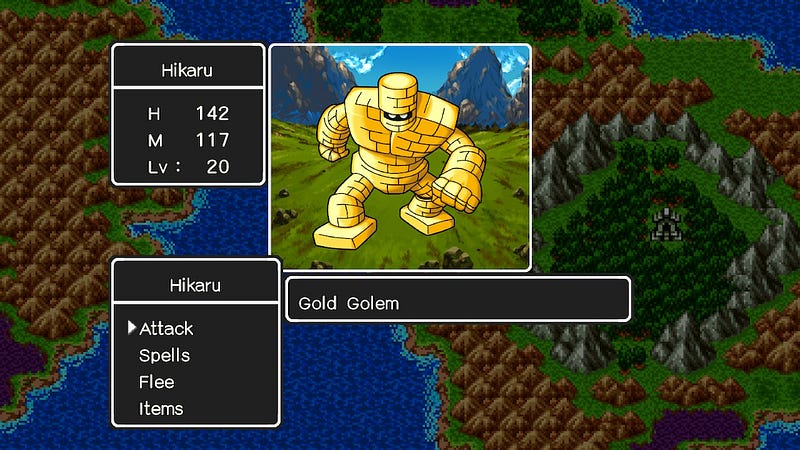
From a game-play standpoint, once the bridge is fixed, the linearity of the quest breaks off and the world is your oyster. Travel around towns, buy new gear, and try to go in the right direction to fight the Dragonlord, the villain behind all the evil plaguing the kingdom. Getting all the weapons and armor is cool, but feels somewhat pointless as the next strong thing is always a short step away. Grinding in this game seems to be important as some items cost a lot of gold and the encounter rate is relatively high. The max level is 30 and by the end of the game I was at 21 so maxing out isn’t a necessity. The combat is very simple as you’re the only person in your party. The enemy and I take turns hitting each other until somebody dies and that’s about it. The magic system is irrelevant as the nonlethal spells can be replaced by items you can buy for cheap, and the only combat spells are ones that do very little damage compared to melee attacks. Without any status moves or stat boosting spells, combat was very simple and one dimensional. The enemies themselves are amusing in Toriyama’s art style, with the stronger versions of a monster just being a recolor of itself with better stats. Visually the game is pleasant and hosts some unique designs. So with this information, what does the ending look like?
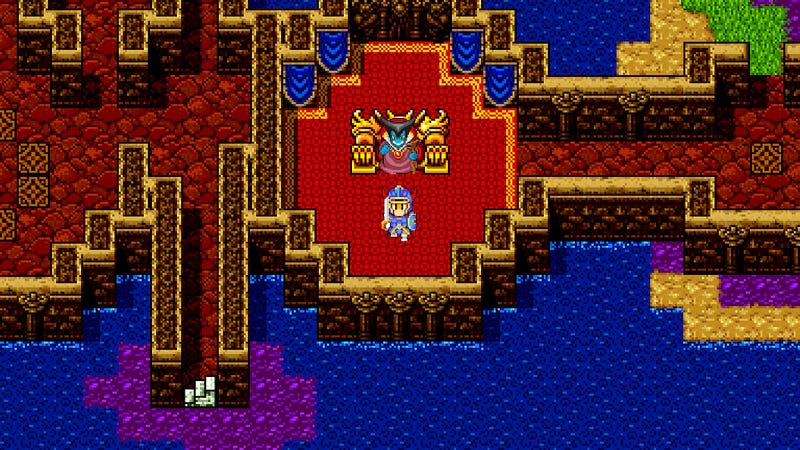
The final act of the game had me crusading through the Dragonlord’s castle equipped with the best kit in the game. The dragon that served as a boss before was now a common enemy with its own recolored, stronger versions. After tearing through werewolves, undead soldiers, and dragons, I finally found him. The Dragonlord himself didn’t look very intimidating at all. He gave me his villain rap, asked me to join his side, I went ahead and said no, and the final battle began. This one took me a few tries as speed ties seemed to be a consistent thing throughout the battle even when I left to go grind in order to get my speed stat up. The victory felt rewarding, but the fight itself was nothing special as we just took turns bashing each other. Regardless, the Dragonlord was slain, I recovered the orb of light, and saved the kingdom.
Overall, Dragon Quest does its job as the grandfather of JRPG’s. Everything felt simple and like a solid first attempt. After finishing this game I went on to finish Persona 5, and right now I’m playing through Golden Sun. The growth in the genre is more than apparent as both of these take the elements of their predecessor and improve upon them immensely. The original Dragon Quest is a simple game from a simpler time, and made for a short and fun experience.
